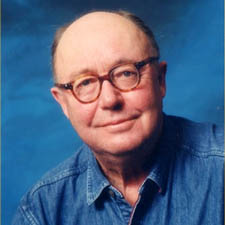| Revision as of 08:43, 16 May 2006 editRichie (talk | contribs)Extended confirmed users1,330 editsm cat← Previous edit | Revision as of 12:15, 8 July 2006 edit undoTim1988 (talk | contribs)1,749 editsm fmtNext edit → | ||
| Line 1: | Line 1: | ||
| ] | ] | ||
| '''Roger Michael Needham ] ] ]''' (], ]–], ]) was a ] ]. | '''Roger Michael Needham ] ] ]''' (], ] – ], ]) was a ] ]. | ||
| Needham began his undergraduate studies at the ] in ], graduating with a B.A. in ] in mathematics and philosophy. His ] thesis was on applications of digital ] to the automatic classification and retrieval of documents. He worked on a variety of key computing projects in ], ], ] (]s) and ]. | Needham began his undergraduate studies at the ] in ], graduating with a B.A. in ] in mathematics and philosophy. His ] thesis was on applications of digital ] to the automatic classification and retrieval of documents. He worked on a variety of key computing projects in ], ], ] (]s) and ]. | ||
Revision as of 12:15, 8 July 2006

Roger Michael Needham CBE FREng FRS (February 9, 1935 – March 1, 2003) was a British computer scientist.
Needham began his undergraduate studies at the University of Cambridge in 1953, graduating with a B.A. in 1956 in mathematics and philosophy. His Ph.D. thesis was on applications of digital computers to the automatic classification and retrieval of documents. He worked on a variety of key computing projects in security, operating systems, computer architecture (capability systems) and local area networks.
Among his theoretical contributions is the development of the Burrows-Abadi-Needham logic for authentication, generally known as the BAN logic. His Needham-Schroeder (coinvented with Michael Schroeder) security protocol forms the basis of the Kerberos authentication and key exchange system. He also codesigned the TEA and XTEA encryption algorithms.
He joined Cambridge's Computer Laboratory, then called the Mathematical Laboratory, in 1962, became head of the lab in 1980, was made a professor in 1981 and remained with the lab until his retirement in 1995. Needham then set up Microsoft's UK-based Research Laboratory in 1997. He was also one of the founding Fellows of Wolfson College, Cambridge.
He was elected to the Royal Society in 1985, became a Fellow of the Royal Academy of Engineering in 1993 and received a CBE for his contributions to computing in 2001. He also was a longtime and respected member of the International Association for Cryptologic Research and the IEEE Computer Society Technical Committee on Security and Privacy. He was married to Karen Spärck Jones.
He died of cancer in March 2003 at his home in Willingham, Cambridgeshire. The British Computer Society, in 2004, established an annual Roger Needham Lecture in his honour.
See also
- Maurice Wilkes (colleague)
- David Wheeler (colleague)
External links
- Information about Roger Needham provided by his wife
- Obit: Roger Needham, The Register, March 2, 2003
- Roger Needham Dies, Business Weekly, March 3, 2003
- Head of Microsoft's European research laboratory dead at 68, San Francisco Chronicle, March 5, 2003
- Roger Needham, Computer Security Expert, Dies at 68, The New York Times, March 6, 2003
- Microsoft's Needham dies from cancer, The Seattle Times, March 6, 2003
- Speech presenting Needham with an honorary degree, Loughborough University, July 13, 2001
- Roger Needham Lecture and Roger Needham Award, British Computer Society